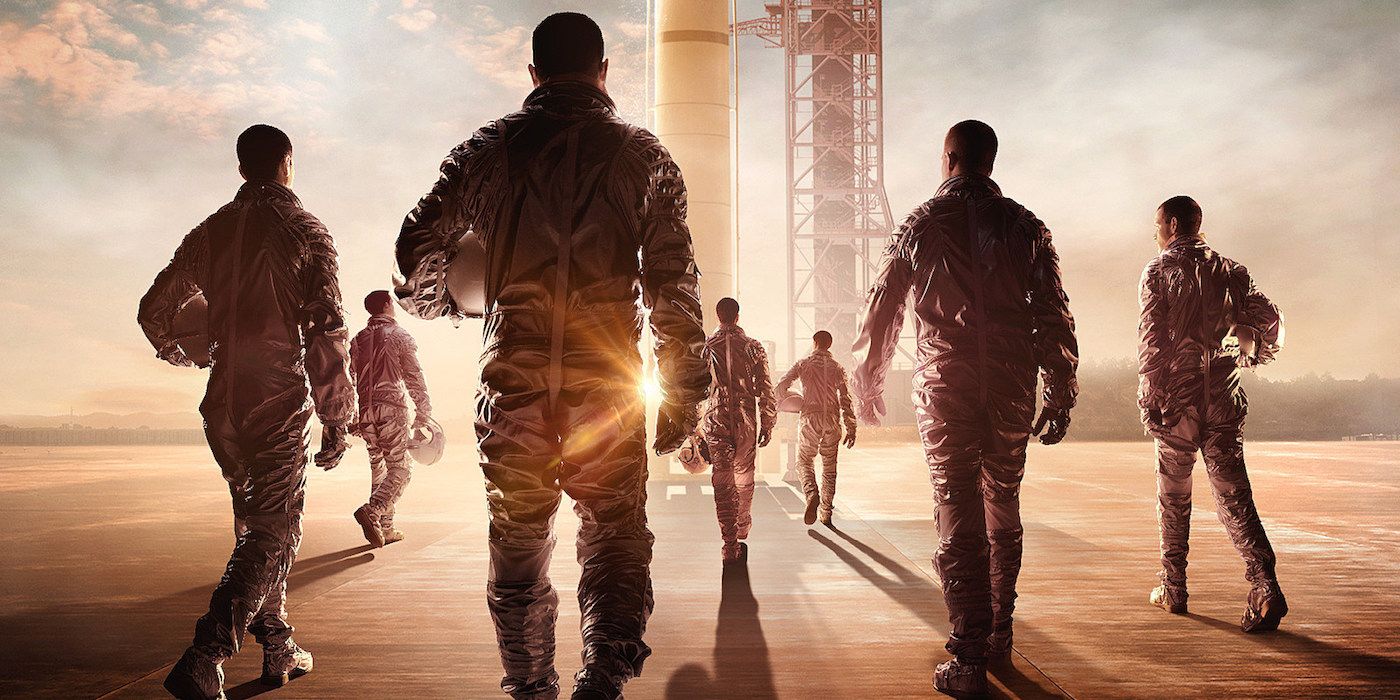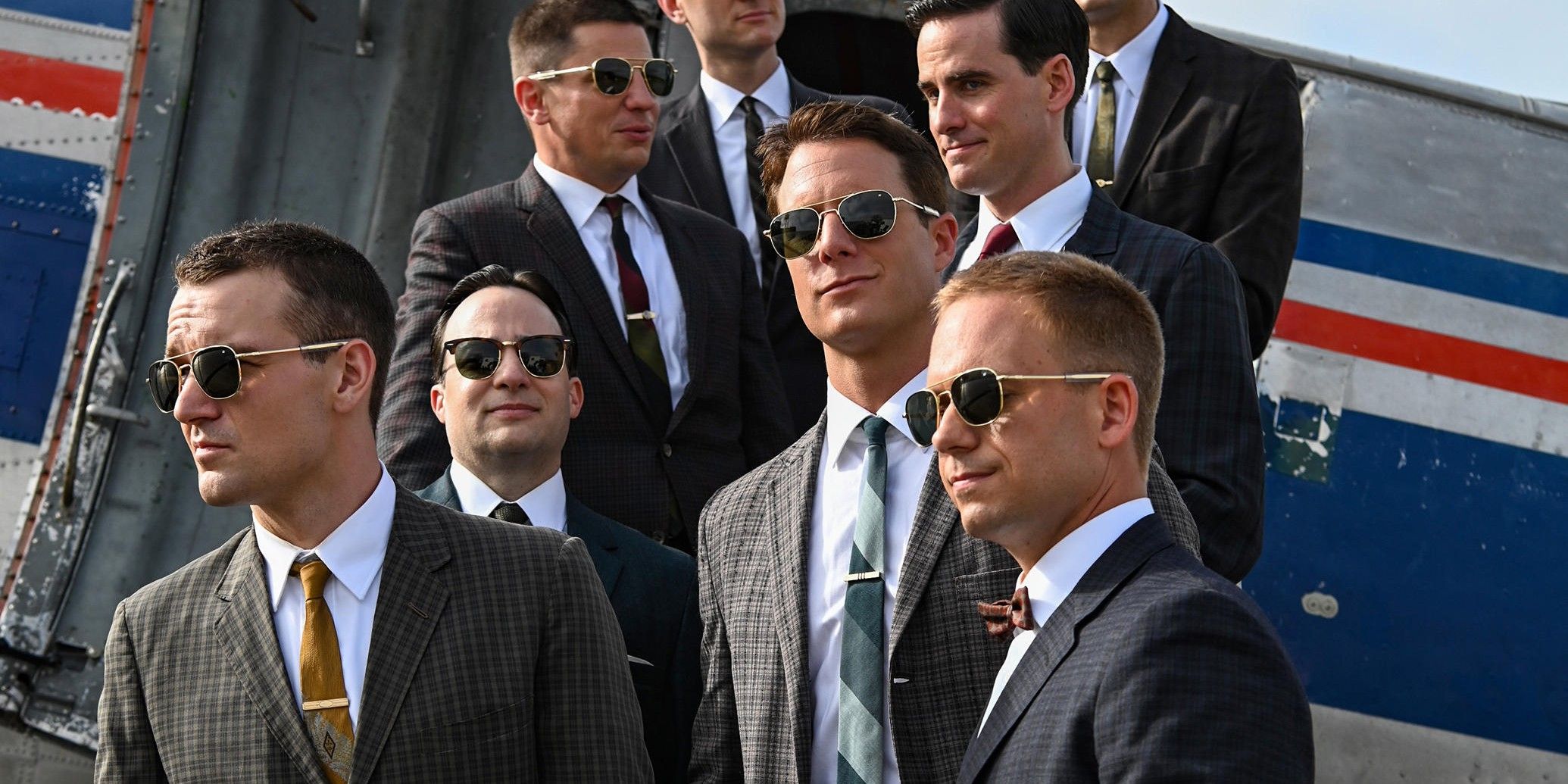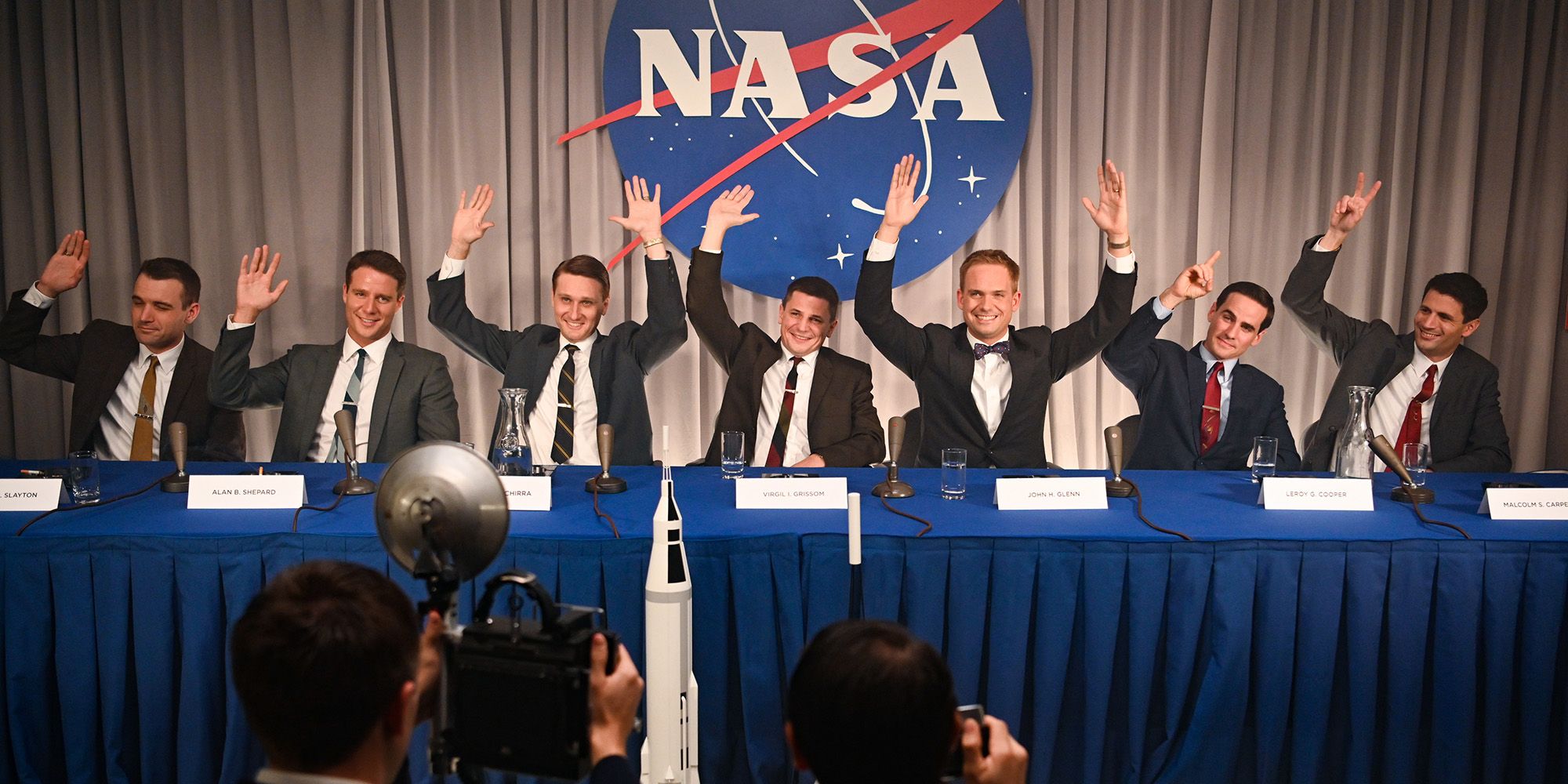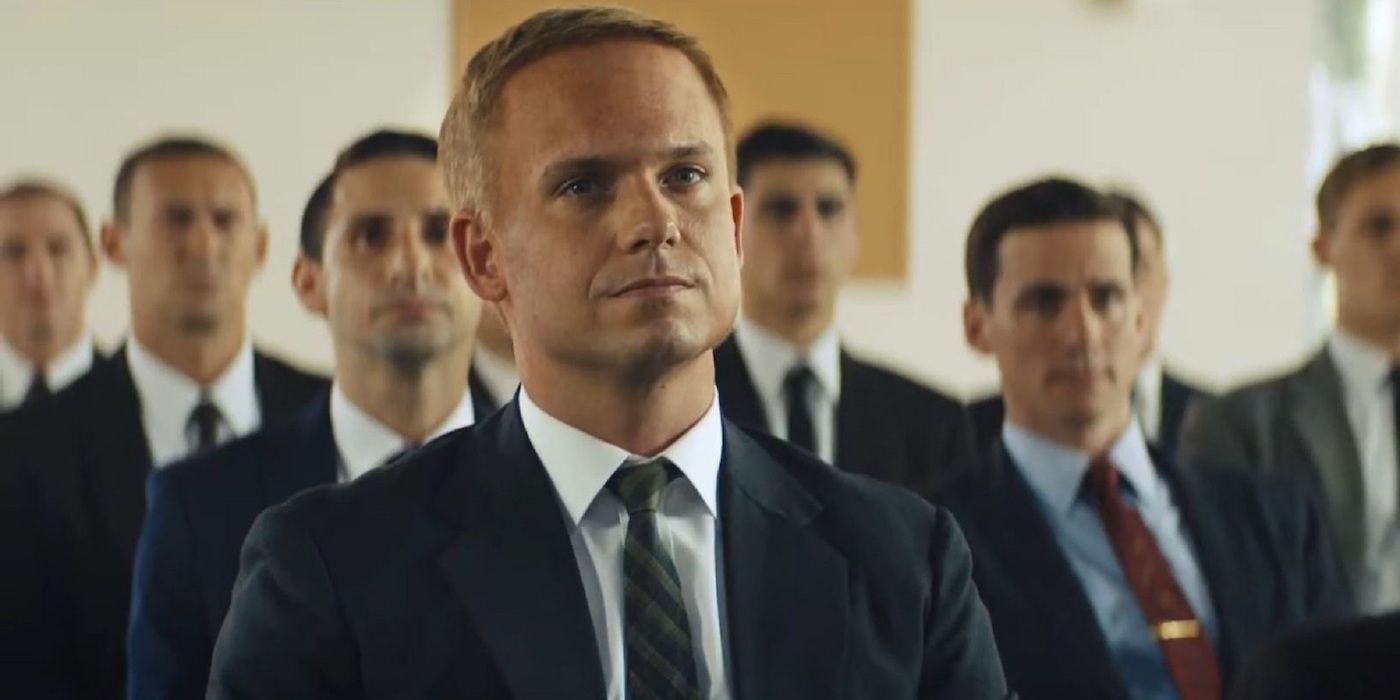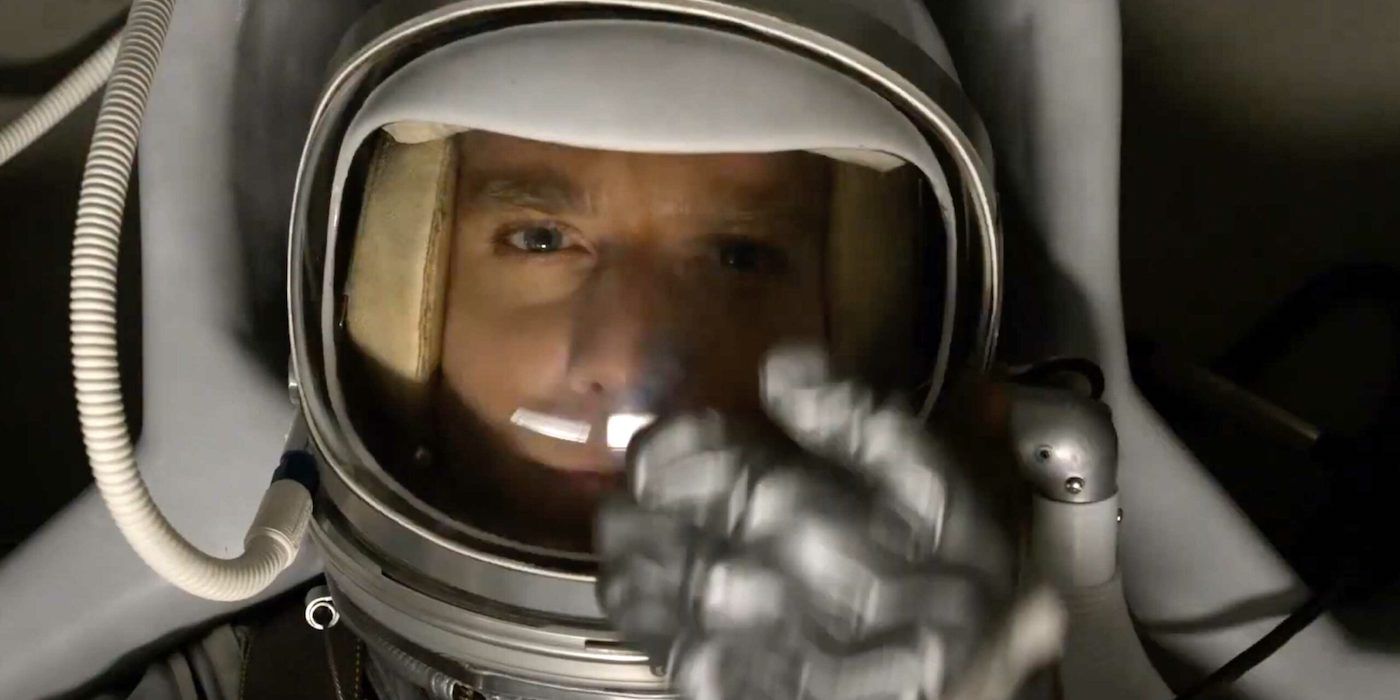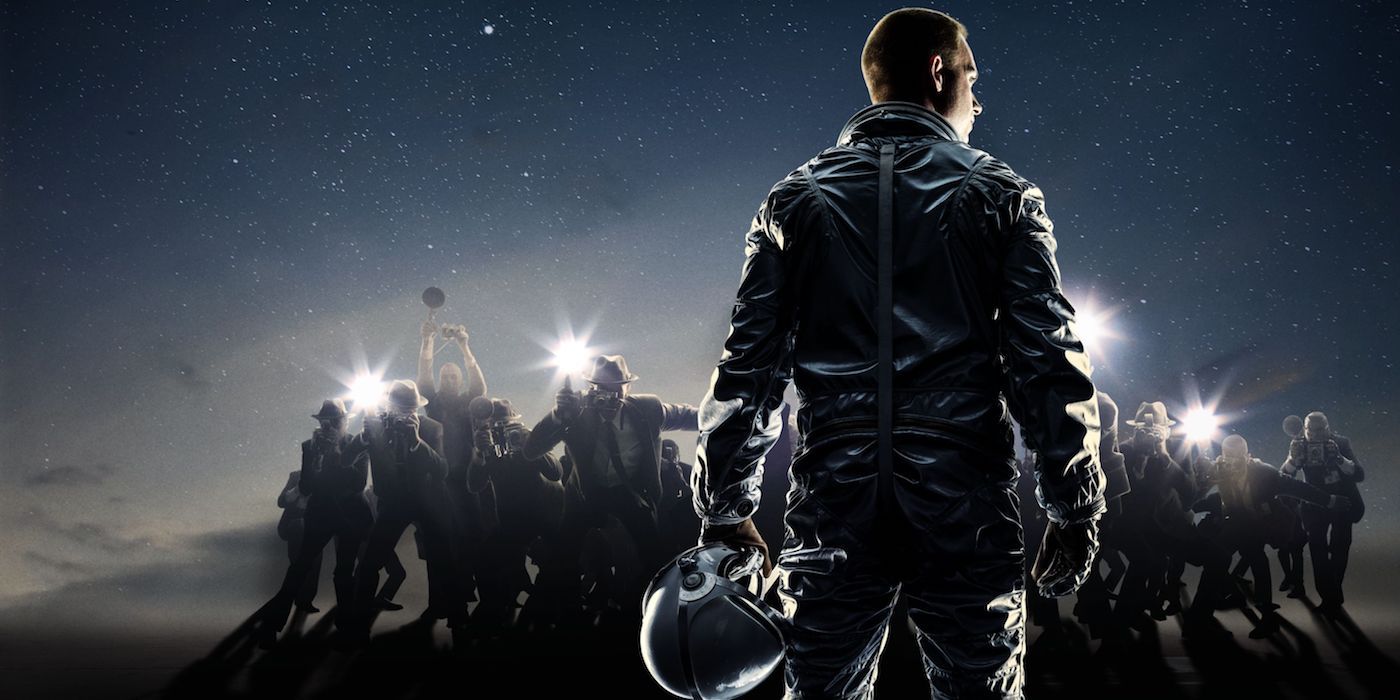In many ways, the 1950s and 1960s were defined by the rivalry between The United States and Russia. This rivalry was known as the Cold War, and it led to historic events like The Red Scare, the Vietnam War, and even played an important role in the infamous War on Drugs. Nearly every world event in recent history has some kind of connection to the Cold War, including Russian interference in American elections in recent years. Modern politics aside, one of the most legendary duels between East and West came in the form of the Space Race, which saw the two global powers literally racing to space and the Moon.
The American side of the Space Race was documented in Tom Wolfe's seminal non-fiction book, The Right Stuff. The novel was adapted into an epic feature film in 1983, and now it's becoming a television series courtesy of Appian Way, Warner Bros. Television, National Geographic, and Disney+. The eight-episode debut season depicts the early days of America's quest to put a man in space, showing the "Mercury Seven" astronauts, not as larger-than-life folklore titans, but as human beings with anxieties, pressures, and the dogged tenacity known as patriotism.
While promoting the upcoming release of The Right Stuff, producer Jennifer Davisson spoke to Screen Rant about developing the project for television, as well as the responsibility of portraying the Mercury Seven as American heroes who had their flaws and weaknesses, but nonetheless possessed great ambition and the determination to see the dreams of an entire nation become a reality. She discusses about the importance of acquiring the rights to specific pieces of iconic period music that captured the feel of 1950s Americana, and expressed her relief and excitement towards adapting The Right Stuff for television, a medium where the massive story of America's journey to the stars could thrive and breathe with a grandeur impossible to depict in a single three-hour movie.
The Right Stuff debuts October 9 on Disney+.
I got to see the first three episodes, and I loved it.
Yay!
I'm thinking about the movie and the show and I'm like, "Man, that movie should have been a show, because it's over three hours!"
It's true! I went back and watched the movie. When we got involved, I read the book first, and I didn't go back and watch the movie for a fair amount of time. Not even on purpose, but I didn't feel like I needed to. But I went back and watched the movie, which of course, I loved, and when you go back and watch it... It's really long! And it's almost broken up into episodes, and it could have been longer. It made me feel like we made the right choice.
Totally, in making it a show. And it's one of those things... I wonder, as a producer, you look at decisions that are made in film and in television where... The Right Stuff, the movie, was not a box office smash in its day. It was only accepted in the years afterward. Is there something as a producer where the writers and the directors come up to you, and you have to go, "well, this decision will make it a better movie, but it will cost us $20 million at the box office. Is that a thing that happens, or am I being silly?
I don't know if it happened on this one in particular. It's different, too. Television has evolved and changed so much in the past handful of years. I think the way we used to looked at television, is so different than the way television is now, that we have the privilege of being able to tell stories that used to only be films, in television now. That's a luxury that really didn't exist, even, like, five years ago.
It gets to breathe, you're not rushing through it... You've got eight episodes to tell this story!
Yeah, and we only get to the first launch. So we've got seasons now, to tell the story of the book if we choose to. I don't think that was something you could do before. That was really how we wound up in television. We traditionally come from films and look at things in a immediately say, "film." Or maybe documentary film if we don't think it's going to make a great narrative feature. This was the first time that we looked at something and said, "This should be our first thing in television." The expansive story, all the characters... It was kind of like, for us, the perfect piece of material to introduce us to TV.
If it's not too early to ask, is everyone on the hook for Season 2?
They are! So we'll see... Fingers crossed, that's what we're hoping for.
You kind of hinted at it, but tell me a bit about how a project like this comes to be. Does it fly across your desk and you stop it and go, "Let's do this one!" Or do you actively pursue and develop it yourself? Why do The Right Stuff over the zillion other stories you could choose?
This is something that was generated internally at our company. My dad is a pilot. He's actually an aerobatic pilot. I grew up on airfields. I grew up around pilots, around a lot of naval aviators, air force aviators. It was part of my being. We were looking for great stories to tell, and somebody in a meeting within the company said, "What about doing The Right Stuff?" And immediately, you go, "Wow." It's a great idea! For us, so often, we start with characters. We look at one singular character and say, "That's a really complicated individual, we want to tell their story." With this, there were seven. All of a sudden, it was like a plethora of all our favorite things to dive into. We love true stories, we love true American stories, we love complicated men at the center of those stories, and here we had all of that and then some.
When I went to go watch it, I wasn't, like, skeptical or anything, but I can't help but have my prejudices about content and sensibilities. I went, "Okay, this is a Disney+ show, let's see what you've got." And The Right Stuff pulls no punches in showing these guys as human beings with human flaws and weaknesses and demons. But they get their act together, so to speak, you know?
That's what's so amazing. They were American heroes! We have a cultural idea that heroes aren't flawed, but the truth is, they are flawed! And a lot of times, it's their own demons and their own complicated nature that drives them forward to do these things that the average person wouldn't do. To us, that's where the real story is. That's where it is. Everybody knows what happened. Everyone knows that Alan Shepard went up and John Glenn orbited and we ultimately went to the moon. Everybody knows that's what happened. But for us, it was, "How can somebody stand on the ground, look up, and go, I'm gonna be the first guy to go up there?" What is the make-up of that man or woman? That's really what drew us to the story.
I wonder if young people today have a frame of reference as inspirational as the space race. Like, the endgame of this is when we, and I'm using the royal we, went to the moon, and everybody who was around back then knows exactly where they watched it on TV, what room they were in, what the wallpaper of that room was like, every detail of that broadcast.
Totally. It came out of a time of real fear, and that's the other thing. My mom tells the story of when the Russians launched Sputnik. She watched it cross the sky of Newark, New Jersey, and being terrified, and feeling so infringed upon. This was something America needed at that moment, to come together. For us, that was the other thing. We really wanted to tell a story about how America, all sides, all different races, colors, creeds, and political backgrounds, all came together and were rooting for this one thing, this one person, this one man. That, to us, was the other thing. The pressure that was put on the men... The pressure of being being Alan Shepard, or John Glenn, or Gus Grissom at that time, when they knew they had the hopes of an entire nation on their shoulders...
The show does a great job of showing their insecurities, for John Glenn it's about being, well, old. He was, like, 38 or 39 when he was picked, and the cutoff age was 40.
Yes. Those were real things. Those were things that Tom Wolfe talks about in the book. Those kinds of insecurities and their own egos drove them to do these amazing things. It's always kind of fun to... You know what the history books tell you, you know what the press and the marketing machine of NASA tells you, but to really go underneath and meet the real guys who have to stare at themselves in the mirror, that's what really gets our blood going.
I'm thinking about JFK saying, "We choose to go to the moon, and do the other things, not because they are easy, but because they are hard,"
(Laughs) Yes, yes. Keep watching!
Okay, got it! But that's a particular brand of American exceptionalism that I can get behind. That we can be flawed and we can be hurt, and we can even kind of screw up every now and then, but we still strive to do great things, and not rest on our laurels.
Exactly. We talk about this a lot now. We definitely didn't kneow where we would be as a country when we started. We didn't know the pandemic would come. We didn't know the various important things that would happen with racial injustice would all be bubbling at this time. But we felt, even before all that, that we needed to show that the country could come together. The country could still achieve great things. We did it in the past, we should be able to do it again. We need to believe that idea more than ever, I think.
Not to be reductive, but to look at it in a macro scale, we've taken our licks in the past. And if you look at it on that scale, we're taking our licks now, which means we have to bounce back the way we have in the past.
Exactly.
I feel like I could discuss the history of the space race and just space in general with you all day, but I should probably get a little more into the nitty-gritty of the show itself. You've got so much period music that is... That's totally my era of rock and roll, late 50s, early 60s. When I heard an Elvis song, I was like, "Oh, they've got that Disney money."
No, I wish that was true! Actually, we became part of Disney later on in the process. We were picked by Disney+. Initially, we were going to air just on National Geographic, who is our partner on the show. They're amazing. But we were very specific about the music. We knew that was going to be a big part of it. It defined that moment in time. The music is so iconic. We were very smart in the way we spent our money. We picked and chose intelligently. But it was really important to have Johnny B. Goode in there by Chuck Berry, we have Elvis in there, Bobby Darin, and we needed that stuff to be part of it. It was such a big part of the world at the time. It was a very conscious choice to be smart about how we spent our money, musically.
Did you send your actors to space camp, or space boot camp to help get them in late '50s hot guy shape?
We actually had a problem, some of our astronauts were too fit! They were more fit than the real guys were. We shot down in Florida, which is incredible. We spent time at NASA. We spent time at the Air Force bases. We sent them all to a flight school for the F104, which is what a lot of them flew at the time. So they got all flight-suited up, and did a couple of fake training courses, and we had some really incredible consultants, both from the NASA side and the test pilot side, who were there with us the whole time. They went, and some of the girls went, too, and got a little taste of what it meant to be a test pilot.
I imagine they all worked out and ate right, and then at the end of it you gave them each a carton of cigarettes.
(Laughs) Exactly. Lots of smoking. Well, we tried to be really careful about it and we didn't want it to feel gratuitous. It's just a couple of our main characters who smoke, and they are very much meant to be character choices, character decisions.
Right. You didn't go full Mad Men with it.
Well, I don't want want to insult Mad Men, it's an amazing show, and we should be so lucky. But no, we tried to be smart about it.
Tell me about "the adaptation." It's a re-adaptation of the book, but I imagine that, here and there, you go, "We've gotta pay tribute to this and that from the movie."
Sure. We had these two really iconic source materials, between the book and the movie. So we really, to be honest, leaned more on Tom Wolfe's book than we did on the film. We were fortunate enough, in the very early process of this, to actually talk to Tom Wolfe. Tom Wolfe had to bless it. We got on the phone with him and basically said to him that our goal and our hope was to truly, truly honor his book, which was meant to be the real story of these real men. And I hope, somewhere, he's really proud of that. It was important to him, because he felt like the full story hadn't been told. The story of the Space Program had been told, but the story of the men hadn't been told. That was our biggest burden. We really wanted to tell the story of the men. We did lean more on the book than the movie.
So far, having seen the first three episodes, you nailed it. You get into the core of these human beings who did truly extraordinary things.
I love hearing you say that, and keep watching. It gets better and better, and we go deeper and deeper. I'm excited for people to see it. Look, we have these amazing actors and filmmakers, and they did a really wonderful job. We're excited for the world to see it.
The Right Stuff debuts October 9 on Disney+.

